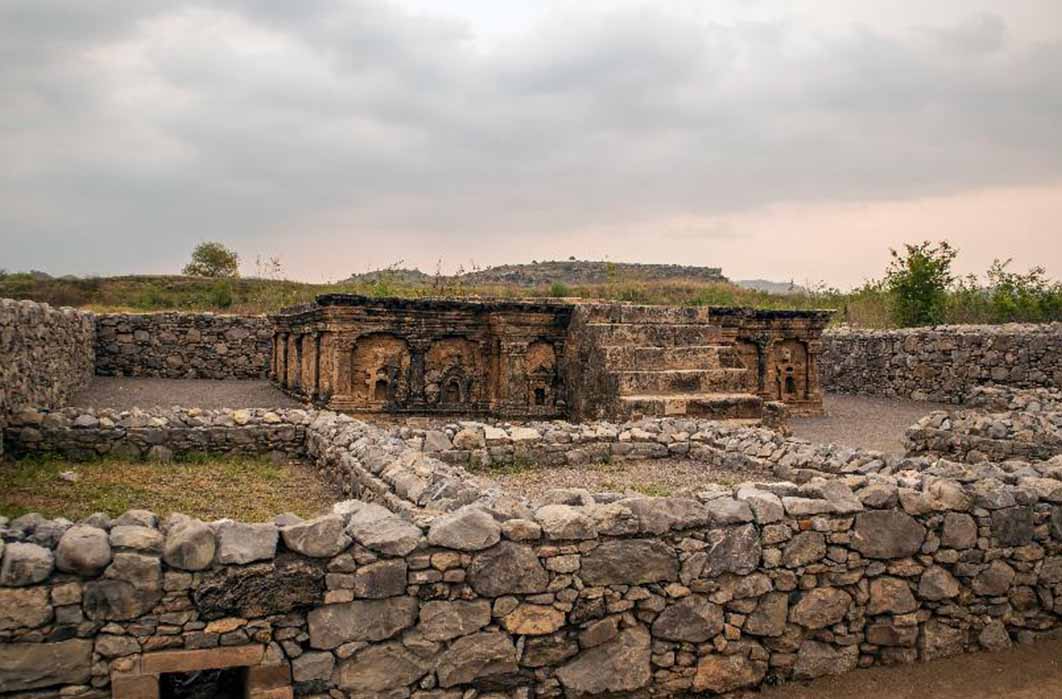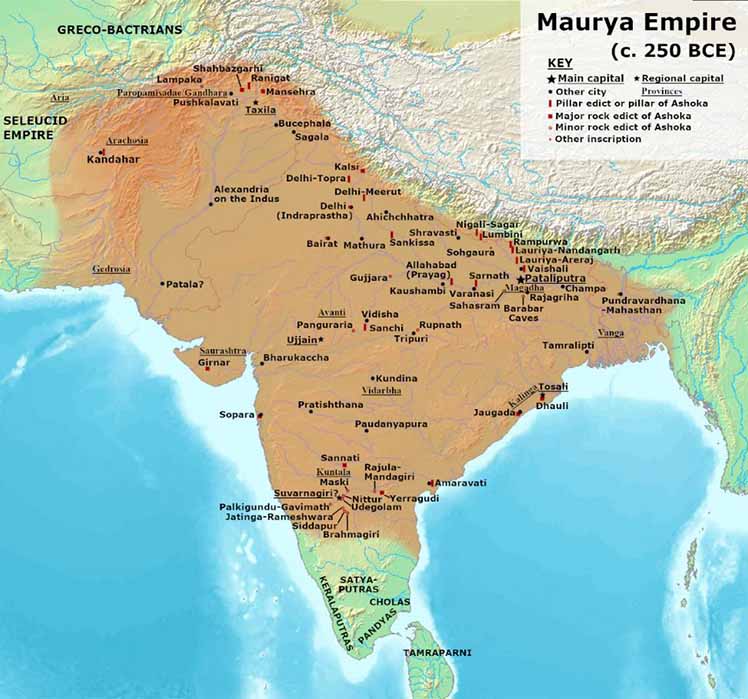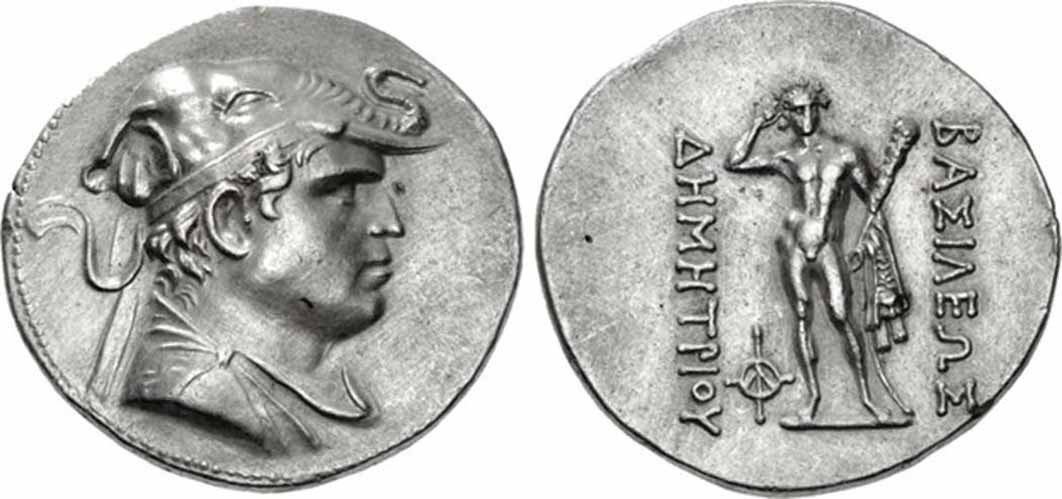
A Rich Fusion of Greek and Indian: The Ancient Ruins of Sirkap
When Alexander the Great invaded the Far East, his armies were awed by the strange cultures, exotic animals, and unknown religions of India. Alexander promoted a fusion of cultures and his successors endeavored to adopt the cultures and blend into their conquered environments. So too did Demetrios I, a young king of Greek origin, establish the wealthy city of Sirkap, (in present-day Pakistan) where excavations reveal a rich fusion of Greek and Indian cultures.
Prelude to the Indo-Greek Empire
By 317 BC, in the aftermath of the death of Alexander the Great, Chandragupta the founder of the Mauryan Empire (present-day north-western India) had conquered the satraps and defeated Seleucus I, a Macedonian general from Alexander's army.
Whilst the Seleucid Empire to the west was conquered, to the north-east of the Mauryan Kingdom lay the Greco-Bactrian Kingdom, (250 – 125 BC) encompassing Bactria and Sogdiana (north of present-day Afghanistan and on the border of Uzbekistan). The King of the Greco-Bactra Empire, Euthydemus, originated from Magnesia, part of the region of Thessaly and he was the son of the Greek General Apollodotus. The Seleucid ruler Antiochus III attacked Euthydemus around 210 BC. Euthydemus lost a battle to Antiochus and retreated to the fortified city of Bactra, where he successfully resisted a siege, until Antiochus finally decided to recognize the new ruler. Euthydemus was succeeded by his son, the young prince Demetrios 1 in 200 BC, and Antiochus sealed a peace treaty with Demetrios, which included offering his daughter to the young prince, as his wife.

Location of the Mauryan Empire. (CC BY-SA 3.0)
By 185 BC Brihadratha, the last King of the Mauryan Empire, was assassinated during a military parade by his commander-in-chief of the guard, Pushyamitra Shunga, who usurped the throne and established the Shunga dynasty. Demetrios, recognizing that the Khyber Pass was unguarded after the fall of the Mauryan Empire, immediately mobilized his troops - and by 180 BC he had conquered present-day southern Afghanistan and north-western India; in so doing he became a Greek king who founded the Indo-Grecian Kingdom.
Demetrios I Founder of the Indo-Greek Empire
Demetrios was known as ‘Demetrios Kalinikos’ or ‘Demetrios the Glorious Conqueror,’ or ‘Demetrios Aniketos,’ meaning ‘Invincible.’ He ruled initially from the wealthy city of Taxila, (in present-day Punjab, Pakistan) situated just across the river from Sirkap. He was never defeated in battle, except for by Pushyamitra Shunga, first ruler of the Shunga Empire, who managed to defeat Demetrios in battle once. So, by 175 BC, the Indo-Greeks ruled most of north-western India, while the Shungas remained in the Gangetic, central, and eastern India.

Demetrios I Aniketos (circa 200 - 185 BC) Tetradrachma. Diademed and draped bust right, wearing elephant-skin headdress (evoking Alexander the Great), symbol of his conquests in India, which greatly expanded the Hellenistic and Graeco-Roman realm/ Herakles standing facing, crowning himself, holding club and lion skin; monogram to inner left. (CC BY-SA 3.0)
The City of Taxila
Ancient Taxila was ideally located on the Grand Trunk Road – a 2,600-kilometer (1615.5 mile) long trade highway, extending from the Ganges River to the north-western border of the Mauryan Empire. It is believed the road had existed since before the time of Buddha and was maintained and overseen by the Maurya officers to sustain trade with western Asia and the Hellenic world.




